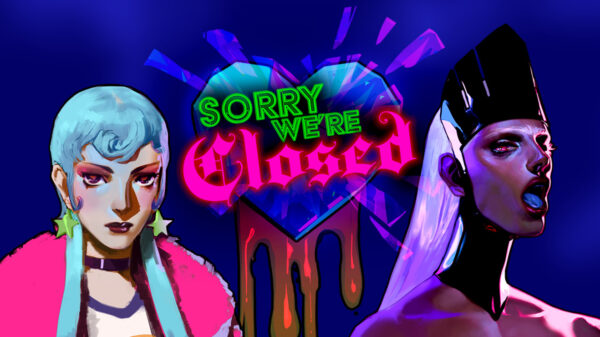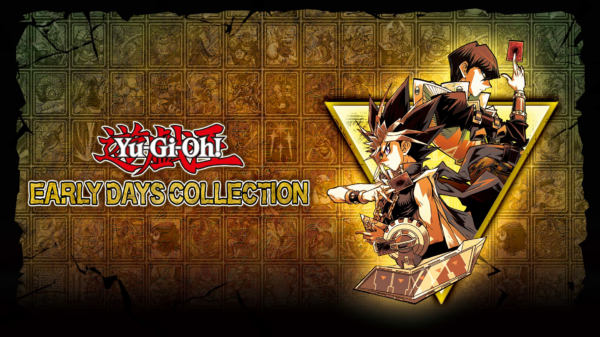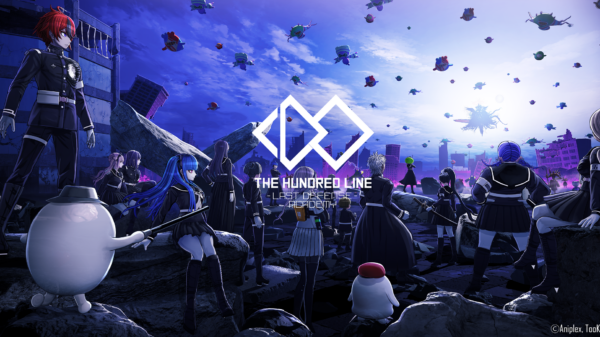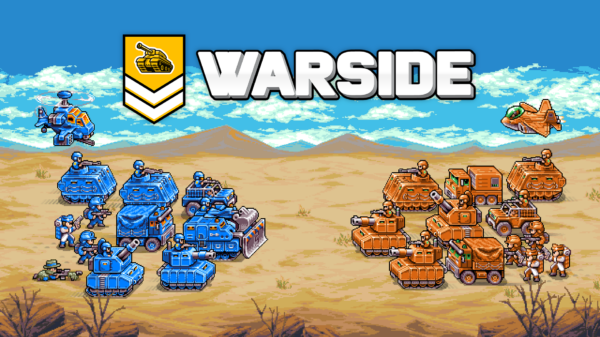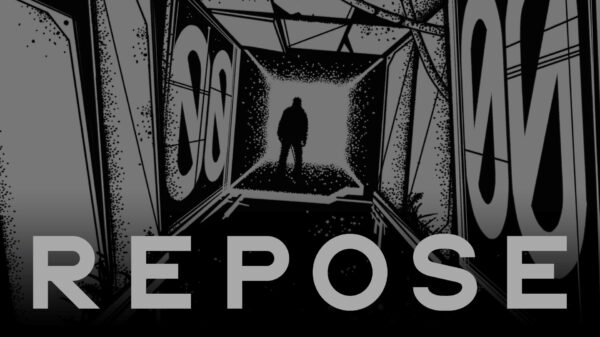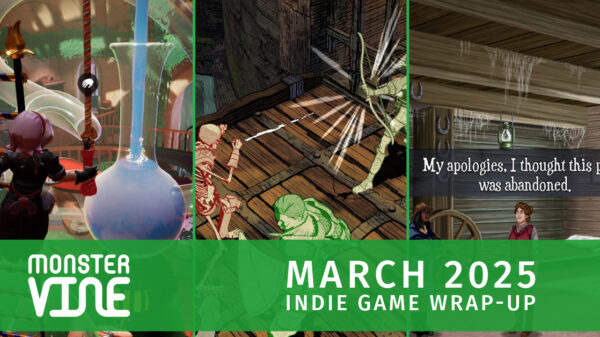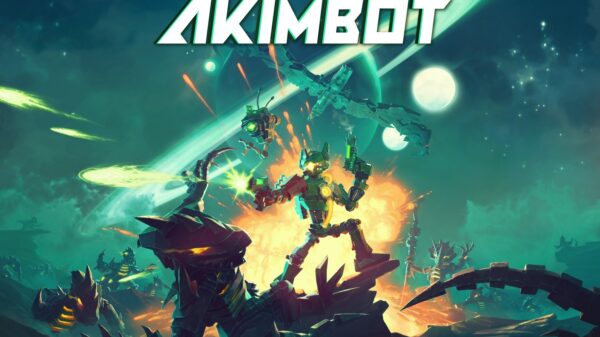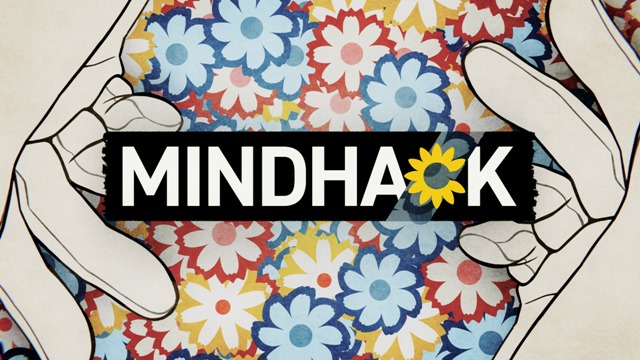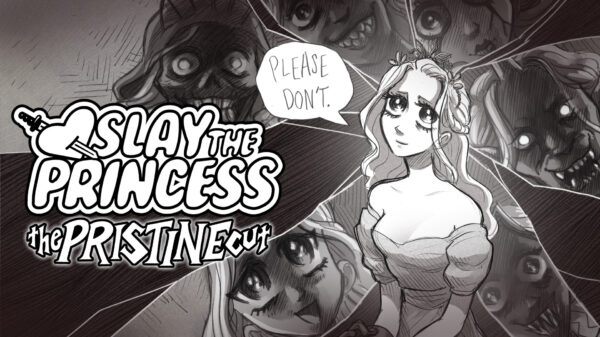Mindhack is an upcoming visual novel with a demo available as part of LudoNarraCon. The full game is expected to release later this year. One thing that stands out about Mindhack right away is its art style. Most scenes in the demo have a limited palette, except for the brightly-colored flowers that the main character loves so much. Characters have fairly stylized designs, particularly the sea urchin character featured in this demo, whose spiky head definitely draws attention.
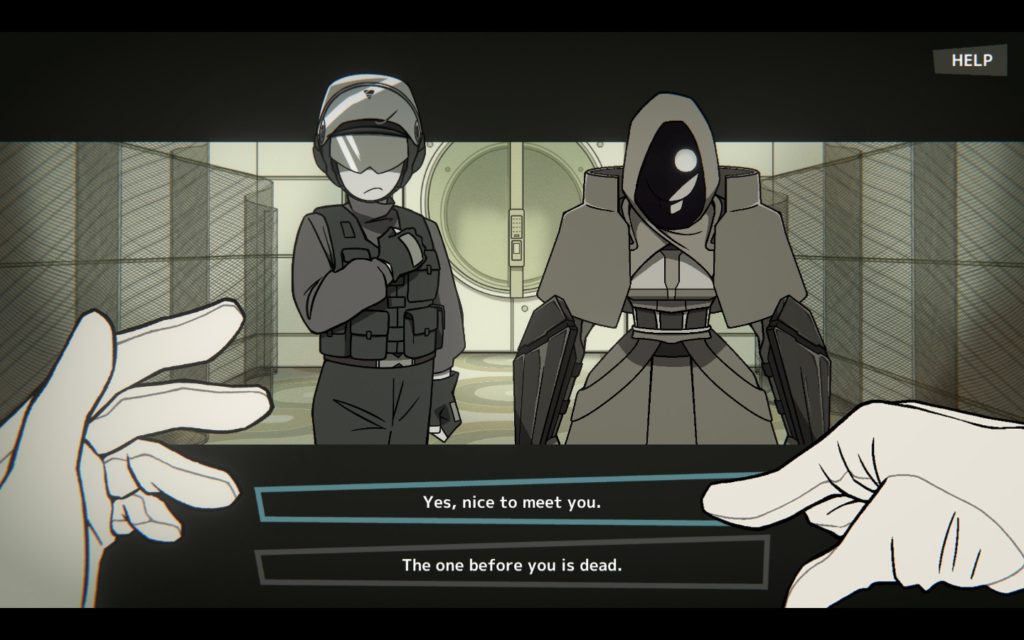
The main character’s hands are visible on-screen at all times, and you point at dialogue choices when you select them. It’s a minor detail, but I thought it was a cute touch. On the other hand, it’s unclear at this point how much dialogue choices actually matter in the long run. It didn’t appear to allow for any actual branching, so they might be there simply for flavor.
You play as a “mindhacker” who has the power to hack into people’s minds and fix the “bugs” in their personalities that cause them to commit crimes. By erasing these bugs, you’ll turn them into good, law-abiding people. Fantastic, right? No? Do you think that sounds creepy? There is definitely an unsettling false utopia vibe throughout all of the Mindhack demo, as you confront a criminal and “correct” his personality into something more suitable.
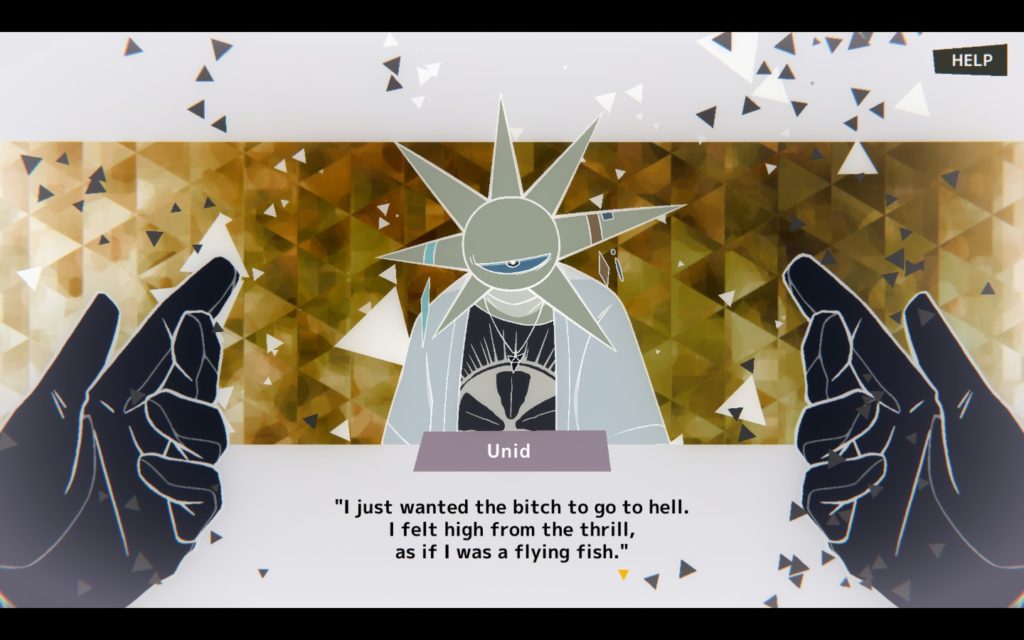
The hacking itself introduces gameplay, but it’s a bit unusual. First, you need to access the character’s memories by choosing the correct words. However, the correct words are displayed right in front of you, so I’m not entirely sure what the point of that element is. Perhaps it gets more difficult later on, or perhaps it’s just for the sake of letting you interact with that part. Once you’ve seen all the memories, you begin turning the character’s mind into a beautiful flower garden. This section is very colorful, in sharp contrast to everything else, which makes the flower garden concept even more memorable.
In terms of gameplay, this section requires you to type the specified words, rather like you do in a typing speed test. This was fine, although for a game that isn’t focused on typing, it felt a little long. This mechanic could get tedious after a while, especially if it gets any longer.
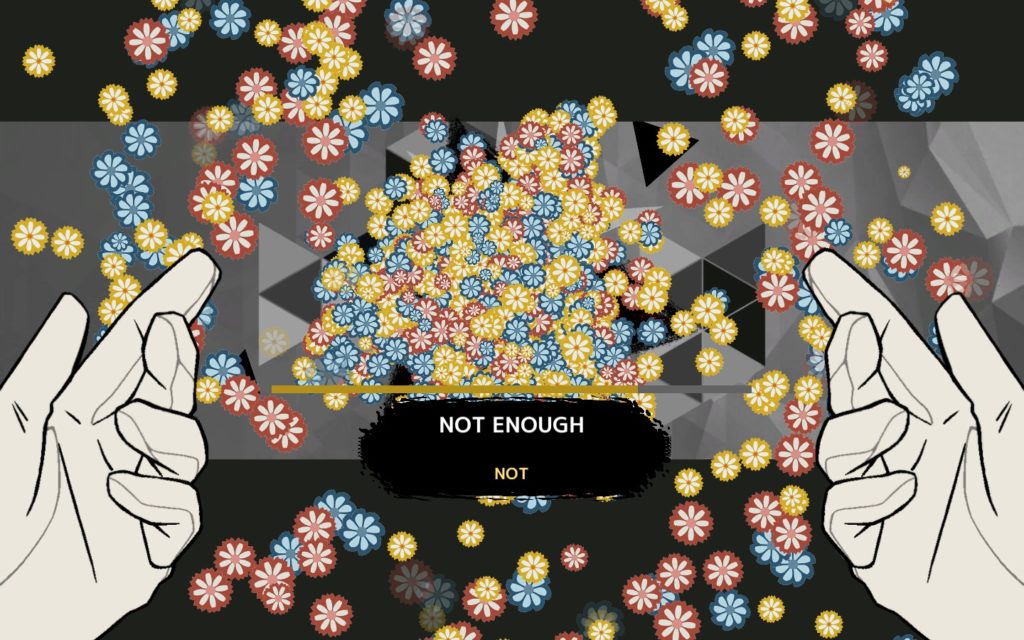
Now, the demo is very short, ending after the conclusion of the first “case” once you finish the mindhacking and talk a bit more to the other characters. That wording makes me wonder if the full game will be split into cases, one for each character whose mind you hack. However, it also ends on a fairly sinister note that gives a hint as to where the overarching story might go.
Despite its brevity, the Mindhack demo provides a good enough glimpse of its disturbing world to be interested in how the full game will play out.





